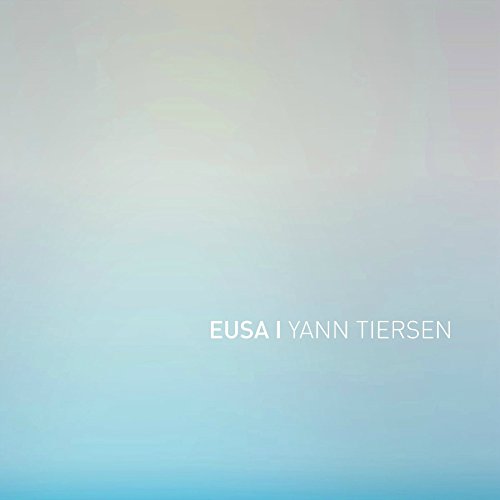
Yann Tiersen
Eusa
Release Date: Sep 30, 2016
Genre(s): Classical, Pop/Rock
Record label: Mute
Music Critic Score
How the Music Critic Score works
Buy Eusa from Amazon
Album Review: Eusa by Yann Tiersen
Excellent, Based on 8 Critics
Based on rating 5/5
French musician and composer Yann Tiersen’s latest work explores his deep affinity for his homeland; the Island Of Ushant, off the coast of Brittany (named Eusa in Breton). Says Tiersen: “Ushant is more than just a home – it’s a part of me. The idea was to make a map of the island and, by extension, a map of who I am.” Tiersen’s map consists of 10 solo piano pieces, each of which was composed on a specific spot on the island.
Based on rating 8/10
After the far-flung travels of ?(Infinity) took him to Iceland and the Faroe Islands, Yann Tiersen returns home figuratively and literally with Eusa. Named for the Breton term for the island off the coast of Brittany where he lives, this is a back-to-basics project for Tiersen -- as basic as his work can be, that is. Conceived as a musical map of his home, Eusa began as a series of field recordings and piano compositions taken from and inspired by different locations on the island that were later issued as an album and a book of sheet music.
Based on rating 8/10
Say the name Yann Tiersen to somebody and they’ll probably immediately think of the Amélie soundtrack. While they'd be correct – he did indeed write it – it’s also wrong, insofar as there is much more to Tiersen than this one iconic soundtrack. Since 1995 he has released a slew of critically acclaimed album starting with La Valse des Monstres, written for theatrical adaptations of Tod Browning’s 1932 classic Freaks, and ending with 2014’s ∞ (Infinity) .
Based on rating 8/10
To North Americans who know him only as the mastermind behind the Amélie score, it might come as a surprise that Frenchsongwriter Yann Tiersen's new album, EUSA, is the first minimal piano album of his storied career. That's right: the man behind "Comptine d'un autre été : L'après-midi" — maybe the prettiest piano composition of all-time — has never made a piano album. That's a shame, because EUSA is a consistently gorgeous work that extrapolates nicely on his past handful of piano-based compositions.It almost didn't exist.
Based on rating 3.5
Rather like Angelo Badalamenti will always be remembered for his iconically creepy soundtrack for Twin Peaks, Yann Tiersen is probably destined to be inextricably linked to one particular movie. Amelie was a great enough film in its own right, but the way that Tiersen’s plaintive music matched to Jean-Pierre Jeunet’s inventive visuals raised it to a whole new level. Tiersen’s career has been a long and varied one though – lasting over 20 years, taking in collaborations with the likes of the The Divine Comedy, Jane Birkin and Tindersticks‘ Stuart Staples, and displaying his skills on a variety of instruments, including accordion, mandolin and violin.
Based on rating 6/10
French composer Yann Tiersen has released the music of EUSA before, but in the form of sheet music. Fans of Beck can tell you that such an idea can only take you so far. In an age where most of us are expected to multi-task during every second of our day, precious few of us have the time to sit down and learn to play a new piece of music. Recordings talk, no matter how cost-ineffective they may have become.
Opinion: Excellent
Make no mistake: ever since Mute became home to his studio albums, monsieur Tiersen has had quite the strike rate. Dust Lane (2010), Skyline (2011), and Infinity (2014) are all richly textured, full-band affairs; grand gestures whose point of focus always seems exterior rather than interior. Nevertheless: almost twenty (?!) years after the fact, the version of this musical polyglot with which many listeners identify remains the Yann Tiersen who crafted the likes of Rue des cascades (1996) and Le phare (1998).
Opinion: Excellent
Despite a varied career that has seen him take a number of musical diversions – flitting between collaborations and soundtracks – Yann Tiersen is, for good or for ill, still primarily known to the wider public for the music he contributed to Jean-Pierre Jeunet's charmingly endearing 2001 film, Amélie. Among the contributions to the film, all drawn from Tiersen’s previous albums, is the gorgeous piano piece, ‘Comptine d'un autre été : L'Après-Midi’, for which Tiersen will now always be remembered. Hardly surprising, for this is the kind of music that transcends genres, borders and tastes thanks to a recognisable romanticism that’s in all too short supply.
'Eusa'
is available now

